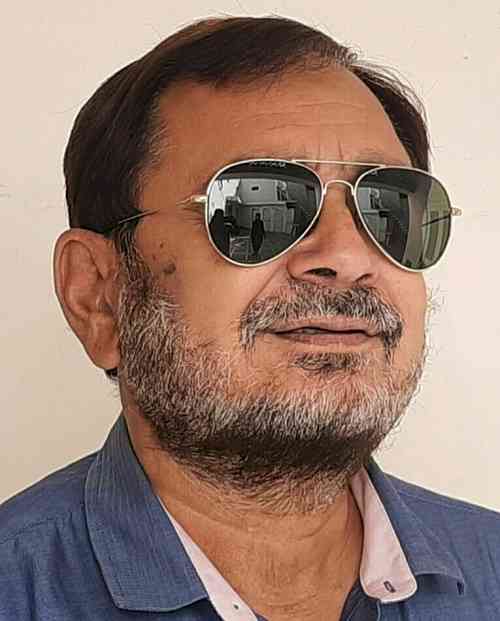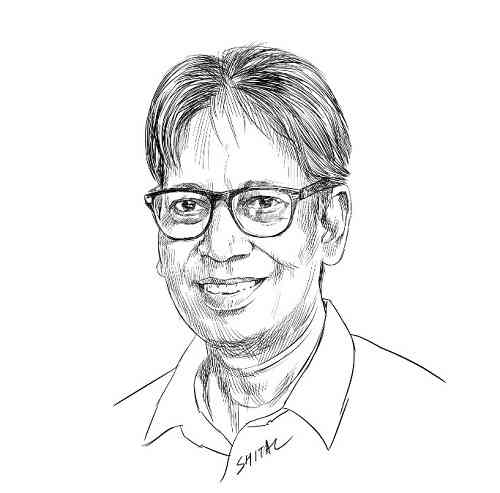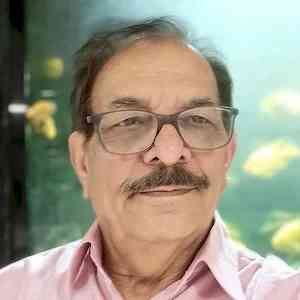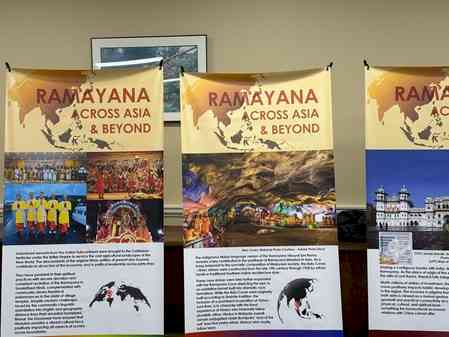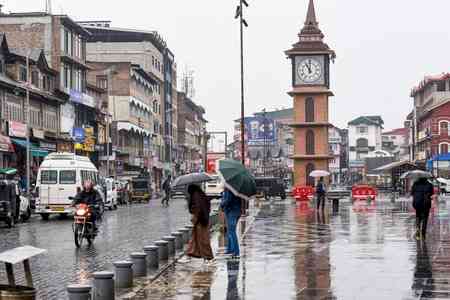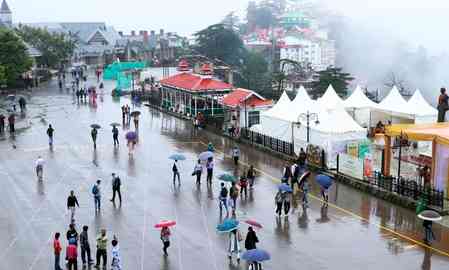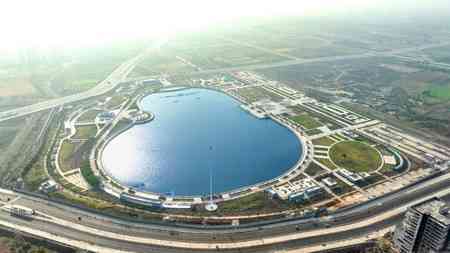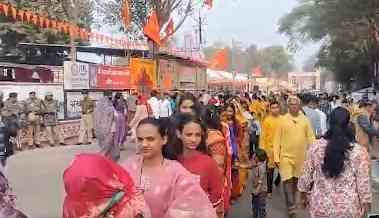Hepatitis -B, C, Alcohol, and Non Alcoholic Fatty Liver disease main cases of Liver damage – Dr Arunanshu Behera
To create awareness on World Liver Day and Rising trend of Liver disease in North India a team of Doctors from Ivy Hospital Mohali addressed the media today. Present on the occasion were Dr Arunashu Behera, Director, Gen Surgery, GI Surg, HBP & Liver Transplant, Dr Srinath Rathod Senior Consultant -General & Laparoscopic Surgery, Dr Sumeet Kainth Consultant Gastroenterology & Dr Divij Jayant Associate Consultant GI Surgery from Ivy Hospital Mohali.
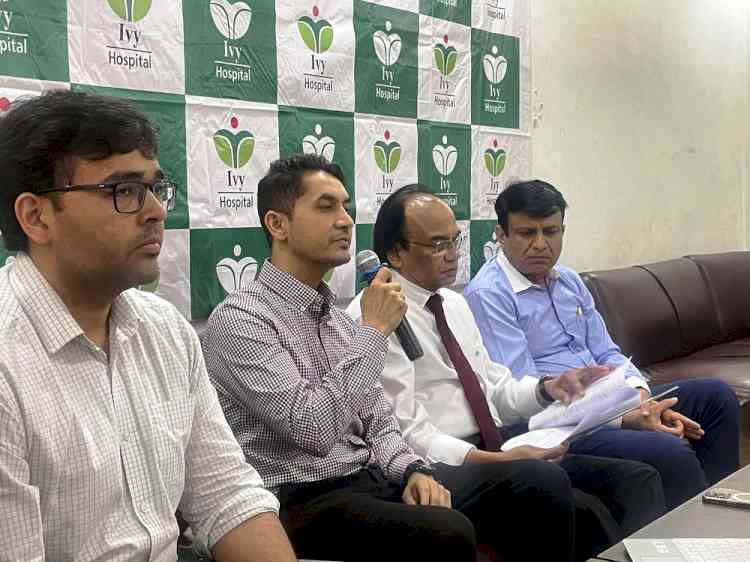
Chandigarh, April 18, 2024: To create awareness on World Liver Day and Rising trend of Liver disease in North India a team of Doctors from Ivy Hospital Mohali addressed the media today. Present on the occasion were Dr Arunashu Behera, Director, Gen Surgery, GI Surg, HBP & Liver Transplant, Dr Srinath Rathod Senior Consultant -General & Laparoscopic Surgery, Dr Sumeet Kainth Consultant Gastroenterology & Dr Divij Jayant Associate Consultant GI Surgery from Ivy Hospital Mohali.
Speaking on the occasion, Dr Arunanshu Behera said “Nearly 1.3 million deaths occur annually due to Viral Hepatitis worldwide every year. In India 40 million people are Chronically infected with Hepatitis B and about 12 million with Hepatitis C.” Hepatitis- B, Hepatitis – C, excessive Alcohol consumption and Non-Alcoholic Fatty Liver Disease are the leading causes of Liver damage in India. He also shared that there has been a paradigm shift in the diagnosis of Liver Cirrhosis and about 10 lacs New patients are diagnosed every year in India. Once a patient is diagnosed as cirrhotic, there are very less chances of reversal of damage. Also, cirrhosis is associated with other complications such as ascites (Fluid in Stomach), Hepatic Encephalopathy, chances of variceal bleeding and other infections. Once a complication begins, the maximum a patient can survive without Liver Transplant is 2 -3 yrs. Dr Behera also shared that at Ivy Hospital Mohali we have dedicated Liver ICU beds and we are performing all Kind of Liver Surgeries including, Liver Resections, Lobectomy, TACE, RF Ablation etc. He also shared that Ivy Hospital will soon be going to start Liver Transplant Surgeries as well.
Speaking on the occasion Dr Srinath Rathods apprised that the “Major causes of Liver cirrhosis are Hepatitis B, Hep C, alcohol abuse and Non-Alcoholic fatty Liver diseases in the ratio of 3:4:3. More than 80% of diabetic patients have more fat than it is Healthy, and this may lead to development of Non Alcoholic Fatty Liver disease. The incidence of Diabetes and Fatty Liver together is deadly but Fatty liver disease can be prevented by life style modification. Fibroscan is Gold standard test to diagnose Liver disease at an early stage. Fibroscan has drastically changed the diagnosis of all kind of Liver disorders, as it is better that Liver Biopsy and other path investigation and this Facility is now available at Ivy Hospital Mohali
On this occasion Dr Sumeet Kainth said “Hepatitis refers to the inflammation of the liver. Viral hepatitis is an infectious disease caused by the hepatitis viruses A, B, C, D and E. In time, the condition can progress to liver fibrosis (scarring), cirrhosis or liver cancer. There are five main hepatitis viruses, referred to as types A, B, C, D and E.” In particular, types B and C lead to chronic disease in millions of people world over and together, are the most common cause of liver cirrhosis and cancer. Hepatitis A and E are typically caused by ingestion of contaminated food and water. Hepatitis B, C and D usually occur through contact with infected blood and body fluids. Common modes of transmission for these viruses include receipt of contaminated blood and blood products, invasive medical and non-medical procedures using contaminated equipment, transmission from mother to baby at birth and also by sexual contact. Acute infection may occur with limited or no symptoms, or may include symptoms such as jaundice (yellowing of the skin and eyes), dark urine, fever, fatigue, nausea, vomiting and abdominal pain. Screening and early detection are key to successful eradication of these viruses before irreversible damage sets in. Without finding out the undiagnosed patients in silent phase and link them to care, millions will continue to suffer and lives will be lost.
Speaking on this occasion Dr Divij Jayant also shared that the theme for World Liver Day is Be Vigilant, Get Regular Liver Checkups and Prevent Fatty Liver Diseases. He also shared that in India the age of Alcoholic liver disease is coming down and it mostly occurs below the age of 30 to 40 years, where as in the western world the average age for this disease has gone up to 45 to 55ys, In India the average age where people start drinking alcohol has come down to 16 yrs, Doing regular exercise, maintain proper weight, having low fat, low sugars and not more than 1400 calories a day and having diet with high Fiber content are few common tips which can keep one away from Liver damage.
Lifestyle measures and precautions to prevent liver damage due to viral hepatitis:
1. Ensure hygienic drinking water. While travelling, bottled mineral water from standard brands and reliable retailers are to be used.
2. Wash your hands properly before and after preparing and eating food.
3. Avoid roadside food vending, especially fruit juices, milkshakes.
4. Barber shops, beauty salons – sharing of razor blades, metal scraper used to remove black heads and white heads from facial skin can act as a source of infections.
5. Blood and body fluid borne hepatitis viruses share common risk factors with other infectious diseases, like HIV and sexually transmitted infections. Sexual transmission is common in Hepatitis B and less so in HCV. Safe sexual practices to be observed.
6. Intravenous Drug use – Disposable Syringes & needles should be used.
7. Hepatitis A and B are vaccine preventable. The only vaccine preventable cancer is Hepatitis B-induced liver cancer.
8. Early detection of silent longstanding persistence by screening of HBV and HCV. Effective treatment is available for both these viruses which induce liver cancer and liver cirrhosis.


 City Air News
City Air News 
